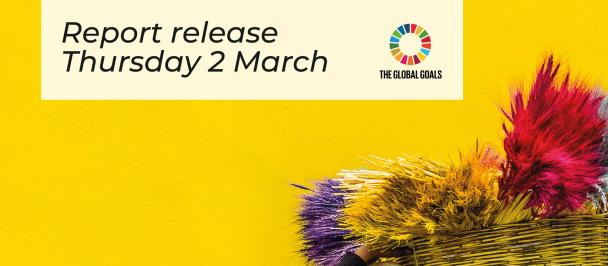Honorable Members of Parliaments, Distinguished guests, Ladies and Gentlemen
It is a great honor and pleasure to be here with you today on this auspicious occasion that has brought together this bright group of talented women leaders. I would like to thank the organisers of this event for their timely initiative and leadership in making it happen.
The Agenda 2030 on sustainable development, shaped by all the world’s countries in 2015 and adopted in the UN General Assembly envisioned a world which is truly inclusive, peaceful, sustainable and resilient. It is difficult to imagine such a world in which the equality between women and men is not a reality.
It is also difficult to imagine such a world – a globalized world, at that – without the peaceful and constructive cooperation of neighboring countries, or the adoption of a regional platform for trade.
It is my hope that this high-level event will lay the foundation for strong and fruitful cooperation between women entrepreneurs in Kyrgyzstan and Uzbekistan, and that similar initiatives in the future will also nurture cooperation among other countries in the region.
Women’s economic empowerment and sustainable economic growth are mutually reinforcing processes. On the one hand, the role and contribution of women in the economy must not be underestimated. Women’s equal participation and leadership is not only an issue of rights, it’s a business imperative.
We know from research that businesses with women well represented on their corporate boards tend to be more stable and profitable. When women work and participate in economies, countries’ productivity and competitiveness improve, which in turn contributes to economic growth and reduces poverty. A McKinsey report estimates that empowering women to participate equally in the global economy could add 28 trillion dollars in GDP growth by 2025.
Despite their importance in the economy, women have largely remained on the sidelines of global trade. Even before the onset of the COVID 19 pandemic, many women were struggling to meaningfully participate in the global economy and capitalize on opportunities presented by trade, including the rise of trade in services, digital trade, and global value chains. The pandemic has only further exacerbated the numerous challenges women face in this regard and exposed their vulnerabilities. In addition to the higher domestic burden of family care work, the socio-economic burdens of the COVID-19 pandemic and its lasting effects have disproportionately fallen on women’s shoulders.
This is for a number of mutually reinforcing reasons, and I will name three. First of all, women are overrepresented in sectors, including the food service and retail, tourism, textiles, and apparel sectors, which have been hit particularly hard by the restrictions imposed contain the virus from spreading. Secondly, more women are engaged in informal work, and we know that the informal sector has been disproportionately affected by the pandemic. Third, many women entrepreneurs own or manage micro- or small businesses that already faced significant barriers before the pandemic, including limited access to finance, and difficulties in complying with the demands of complex regulatory environments. In Kyrgyzstan, a higher proportion of women-led MSMEs (72%) reported they could not repay their loans, compared with MSMEs led by men (61%).
And we should not forget that women continue to do most of the often unaccounted for work in our homes, and this has become all the more pertinent in light of temporary school closures during the pandemic. UN Women’s rapid gender assessment in Kyrgyzstan shows that during the lockdown women spent 3.6 times more time on unpaid work than men and two times more time on childcare.
This brings me to the significance of this forum. Because today, more than ever before, regional cooperation is crucial to building back better, to making economic development more inclusive and sustainable, and to making businesses more resilient.
Through regional collaboration among businesses, we hope to see the emergence of value chains and integration of businesses across borders that overall increase the competitiveness of business sector in the Fergana Valley and Central Asia region.
It is our hope that deepening regional cooperation can foster also stronger social cohesion among border communities and cross-border cooperation, which can foster peace and stability and lead to more sustainable and peaceful future. Such business in itself could become a very important resilience factor.
It is my hope that this event will provide a platform where its participants come together and tackle common challenges, build mutually beneficial business relationships, and strong, long-lasting partnerships.
Thank you very much. Chon Rahmat. Katta Rahmat

 Locations
Locations


